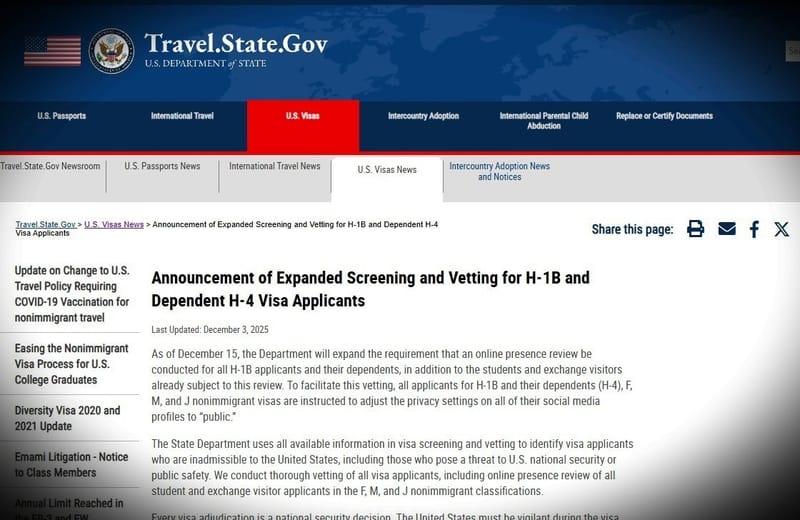New $100K H-1B Visa Fee Forces Tech and Retail Giants to Rethink US Hiring
This unprecedented H-1B visa fee hike drastically alters the landscape for skilled foreign talent and forces employers to fundamentally reconsider their US hiring and international talent strategies.

Subscribe to our newsletter and stay informed about latest H1B news, policy updates and and other developments.
Article Summary
The Trump administration introduced a new H-1B visa rule requiring a $100,000 fee for each application, aimed at prioritizing domestic employment. This policy has prompted major employers like Cognizant, TCS, Intuitive Surgical, and Walmart to significantly pause or halt H-1B sponsorships and localize their US workforces. Business groups, including the US Chamber of Commerce, are challenging the fee, calling it a 'barrier to innovation' and 'cost-prohibitive'.
Original Article: businesstoday.in
[ Sentiment: negative | Tone: factual ]
This summary and analysis were generated by TheNewsPublisher's editorial AI. This content is for informational purposes only; it does not constitute legal or immigration advice.
[ Sentiment: negative | Tone: factual ]
This summary and analysis were generated by TheNewsPublisher's editorial AI. This content is for informational purposes only; it does not constitute legal or immigration advice.
TNP AI: Key Insights
This $100,000 H-1B visa fee represents a radical departure from previous fee structures, which typically involved costs in the thousands, not six figures. For skilled professionals, this change drastically reduces sponsorship opportunities, compelling many to seek alternatives or explore career paths in other countries. It effectively acts as a significant barrier to entry for foreign talent, particularly impacting those in the tech and medical fields.
For employers, especially startups and mid-sized businesses, this fee is profoundly prohibitive, echoing the US Chamber of Commerce's concerns about innovation and global competitiveness. The strategic shift by giants like TCS towards localization and offshore models suggests a wider trend, potentially leading to a brain drain from the US and accelerating the growth of skilled workforces in other global hubs like India and Europe. The ongoing legal challenge highlights the highly controversial nature and potential instability of this policy.




